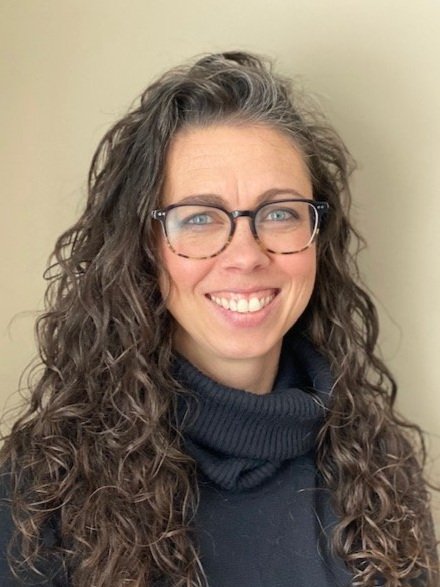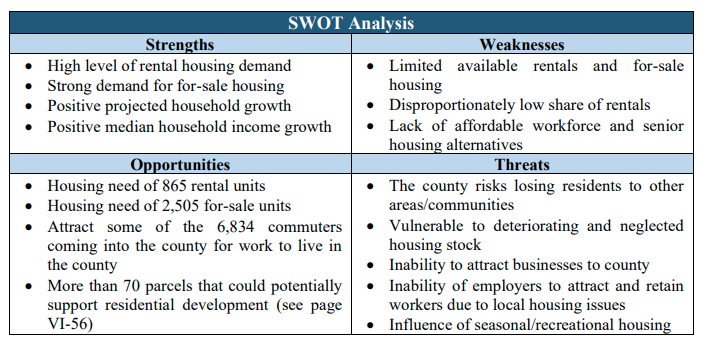July 2023 Newsletter
LLT Housing Video Debuted
The Leadership Little Traverse class of 2023 (LLT23) recently released a video documenting the many ways housing scarcity has impacted people throughout our community. Funded by grants from the Petoskey Rotary Club Charities and Housing North, the video debuted at the Chamber's Hot Topics Housing Town Hall on June 12th. It has a permanent home on the Little Traverse Bay Housing Partnership's website or you can access it directly below.
The LLT class created this film as a tool for area housing advocates to show why the lack of affordable housing at all income levels matters by seeing the faces and hearing the voices of people in our community who are directly impacted.
LLT23 also used grant funds to make 250 stickers with a QR code link to the video and the message "H.O.M.E.S. - Housing Makes Emmet Stronger". The idea is that people will put the stickers on their water bottles and notebooks to start conversations and self-identify as local housing advocates. Stickers are being distributed to the public through Housing North, Habitat for Humanity, and several Petoskey and Harbor Springs Chamber organizations.
Because of all the support received, LLT23 was able to advocate for housing solutions in our community not only by creating the video but also by raising $15,000 for Habitat for Humanity of Northwest Lower Michigan's Funding our Future capital campaign. Congratulations to LLT23 for its good work advancing efforts to address housing needs by calling attention to how housing scarcity affects us all.
Current Housing Projects Emmet County
LEGISLATION SIGNED FOR TAX-INCREMENT FINANCING AND ZONING UPDATE SUPPORT FOR HOUSING
On July 18, 2023, Governor Gretchen Whitmer signed bills that approved two initiatives championed by the Housing Michigan Coalition that includes both Housing North and the Northern Michigan Chamber Alliance.
The legislation substantially expands activities that can be reimbursed through Brownfield Redevelopment Authority tax increment financing (TIF). SB129 adds properties with housing as eligible brownfield sites. A wide variety of housing activities for households with incomes of not more than 120% of a community’s average median income (AMI) are now eligible for Brownfield TIF capture. These include infrastructure necessary for a housing project; renovation and rehabilitation of existing buildings; acquisition of blighted or obsolete rental units; costs of demolition and renovation of existing buildings and site preparation; and reimbursement to a developer to fill a financing gap associated with developing housing units priced for households earning not more than 120% of AMI. Read the press release here.
The second successful initiative supported appropriating $5 million from the state budget for grants to local units of government that adopt pro-housing zoning reforms. Examples might include master plan updates or zoning amendments. The MEDC’s Redevelopment Ready Communities program is expected to administer the funds. Read more on the bills here.
The Challenge of Infrastructure
Infrastructure is one of the biggest, scariest barriers to residential development in rural communities all over Northern Michigan. We just need more of it. Infrastructure is basically the physical systems and facilities that serve a community and are necessary for it to function properly. Roads, sidewalks, water, sewer, electricity and internet are all examples of infrastructure. Construction and maintenance of infrastructure is financially intense and usually requires participation of both the public and private sector. The impact of such systems is so profound on both the residential and economic success of a community, the oversight of infrastructure is often the responsibility of local government. In fact, it is some of the most complex and expensive work of local government and, arguably, the most important.
Infrastructure dictates how we interact with our community physically, economically, and emotionally. Proper design and function of community infrastructure is directly related to quality of life. Planning a community that makes the most out of their infrastructure requires engineering and attention to personal interaction. Can we make an intersection that moves the right number of cars, but also feels inviting and safe to use as a pedestrian?
The Michigan Association of Planners’ 2022 “Residential Zoning Reform Toolkit” (available at https://www.planningmi.org/zoning-reform-for-housing) offers a straightforward way for our communities to maximize existing infrastructure, increase access for residents and increase quality of life for the whole community. Firms like Toole Design specialize in creating safer and more walkable roadways. Organizations like “Strong Towns” help to educate communities about the value (monetary and otherwise) of intentional use and design. The alternative, to keep pushing development farther out, is even more expensive for townships in the form of infrastructure expansion and maintenance, more expensive for our residents and more expensive for our environment.
HOUSING READY DIRECTOR UPDATE
HOUSING NORTH UPDATE
New Regional Housing Needs Assessment 2023 Released
Housing North recently released the much-anticipated Northwest Michigan Housing Needs Assessment which provides extensive information about the demography, economics, housing supply, and housing gaps and demands for the region's ten-county service region for the period 2022 to 2027. The report was developed in conjunction with Bowen National Research over the past nine months and was made possible by support from the Frey Foundation and Networks Northwest. For a copy of the full report, including county-by county analysis, go to https://www.housingnorth.org/housing-data.
The report concludes with a SWOT analysis summarizing the county’s housing strengths, weaknesses, opportunities, and threats (p. 75). The analysis at once confirms the need for more multiple housing options at all price levels and suggests new strategies for future development priorities.
Some of the key findings in the report for Emmet County:
Household growth is projected to remain strong in the region, with Grand Traverse and Emmet Counties leading the way.
The county has an overall housing gap of 3,370 units, with a gap of 865 rental units and 2,505 for-sale units across all income categories for the five-year projection period.
The greatest rental housing gaps appear to be for the lowest housing affordability segments (rents below $1,665 affordable to households earning up to$66,560).
The greatest for-sale housing gap is for housing prices between $221,868 and $332,800, which is affordable to households earning between $66,561 and $99,840.
The highest demand for housing, based on affordability, is for households with incomes between 81 and 120 percent of the Area Median Household Income (AMHI).
There remains a mismatch between workers’ wages and the affordability of housing, as most single wage-earning households have difficulty renting a home and few can buy a home.
PROJECT UPDATES
HOUSING TOWN HALL UPDATE
On Monday, June 12th the Petoskey Regional Chamber of Commerce held their second annual Hot Topics: Housing Town Hall. The goal of the event was to inform the community about the status of housing in our region and its impact on our workforce and economy. This year’s meeting focused on where we are seeing successes and where we still struggle.
The event kicked off with the premiere of the Leadership Little Traverse Class of 2023 (LLT23)’s community service project video that highlights the need for housing across our region. (For more information on the video, see the Newsletter article “LLT Video” below.)
Nikki Devitt, President, Petoskey Regional Chamber of Commerce gave an overview of the new Statewide Housing Plan, a five-year rolling plan designed to provide safe, healthy, and affordable housing for all Michigan residents wherever they live. Devitt was appointed by Gov. Whitmer to serve on the 18-member Statewide Housing Partnership which is responsible for overseeing the plan with MSHDA. Click here for more information about the plan.
Featured speakers for the event included:
Andrea Jacobs, Emmet County Housing Ready Director, Housing North. Jacobs spoke about the status of current projects in Emmet County and gave a first look at the newly released housing data from Housing North.
Sarah Ford, Director of Community Philanthropy, Petoskey-Harbor Springs Area Community Foundation described the community foundation’s role in addressing the housing crisis, the complexities of funding barriers, and the challenges in getting communities ready for development.
Sarah Ulrich, Executive Director, Northwest Michigan Habitat for Humanity gave an update on the funding for Habitat’s Foundations for our Future campaign and highlighted the broad range of families that could qualify for the 43 Habitat homes being built in the Meadowlands subdivision in Alanson.
Hillary Taylor, Assistant Planning and Zoning Director for Emmet County talked about the recent efforts of the County to attract responsible development to the area and the complexities of creating zoning that both allows growth and maintains the look and feel of the community.
This year’s Housing Town Hall was sponsored by Comfort Keepers and once again provided a great opportunity for the community to stay engaged in ongoing housing conversations.
Local Policy Updates in Planning & Zoning for Emmet County
Emmet County Planning and Zoning Staff have been working with the County Planning Commission for several months on proposed amendments to the County’s Planned Unit Development-Residential Overlay (PUD-RO) Zoning Ordinance. The amendments would allow density and height bonuses for “missing middle” housing (duplexes, small multi-family, and cluster housing) based on site amenities:
If a PUD-RO is on a property located within a ¼ mile of a potable water system and community sewer and/or the ability to provide a community well and an engineered septic system, the Planning Commission can consider a density bonus to allow up to 13-20 units per acre if it includes a substantial number of features. These include, among others, access to a wheelway or park experience, is in a rural zoning district and utilizes cluster housing, is located within a mile radius of the City of Petoskey and/or within a ½ mile of a school, includes a significant native plants landscaping plan with underground irrigation, provides recycling facilities, proposes underground or multi-level parking, and buildings are proposed to be constructed to LEED Certified standards.
Structures up to a maximum height of 40 feet (rather than the normal 30 feet) may be approved by the Planning Commission if several criteria are met.
The proposed amendments have been shared with townships for input prior to a public hearing by the Planning Commission at a future meeting.
Statewide Housing Plan and Regional Housing Partnerships
As the Michigan Statewide Housing Plan continues to take shape, the Michigan State Housing Development Agency (MSHDA) recently created and tasked 15 Regional Housing Partnerships (RHPs) and their lead agencies to build an inclusive coalition to help create and implement a plan for their region. You can view the RHP map and contact list at www.Michigan.gov/housingplan. Housing North was appointed the lead agency for our10-county northwest Michigan Region D.
The first meeting for housing partners and stakeholders in Region D will take place on July 26th in Traverse City. The purpose is to define partner engagement, identify regional priorities, create work groups, and establish a steering committee to help guide a regional housing plan. The next goal will be for the RHP to create action plans in support of the Statewide Housing Plan by the end of August with public review in September – a very tight schedule!
Future RHP meetings will focus on selecting and developing regional goals and strategies for the initial year of the plan. Housing North is hosting a virtual input session on August 8 at 3:00 p.m. to gather ideas from the larger community. To learn more about this plan, the regional partnership, and ways to get involved click here.
LEADERSHIP LITTLE TRAVERSE VIDEO HIGHLIGHTS HOUSING NEEDS
Andrea Jacobs
andrea@housingnorth.org
*Phase:
Predevelopment:
In the site plan and construction approval process.
Funding:
Identifying (usually multiple) funding sources.
Building:
Construction is underway
Contact Andrea Jacobs at andrea@housingnorth.org for more information about a particular project. The table will be updated regularly on the LTBHP website at www.ltbhp.org.
A quarterly update from Emmet County Housing Ready Director Andrea Jacobs






